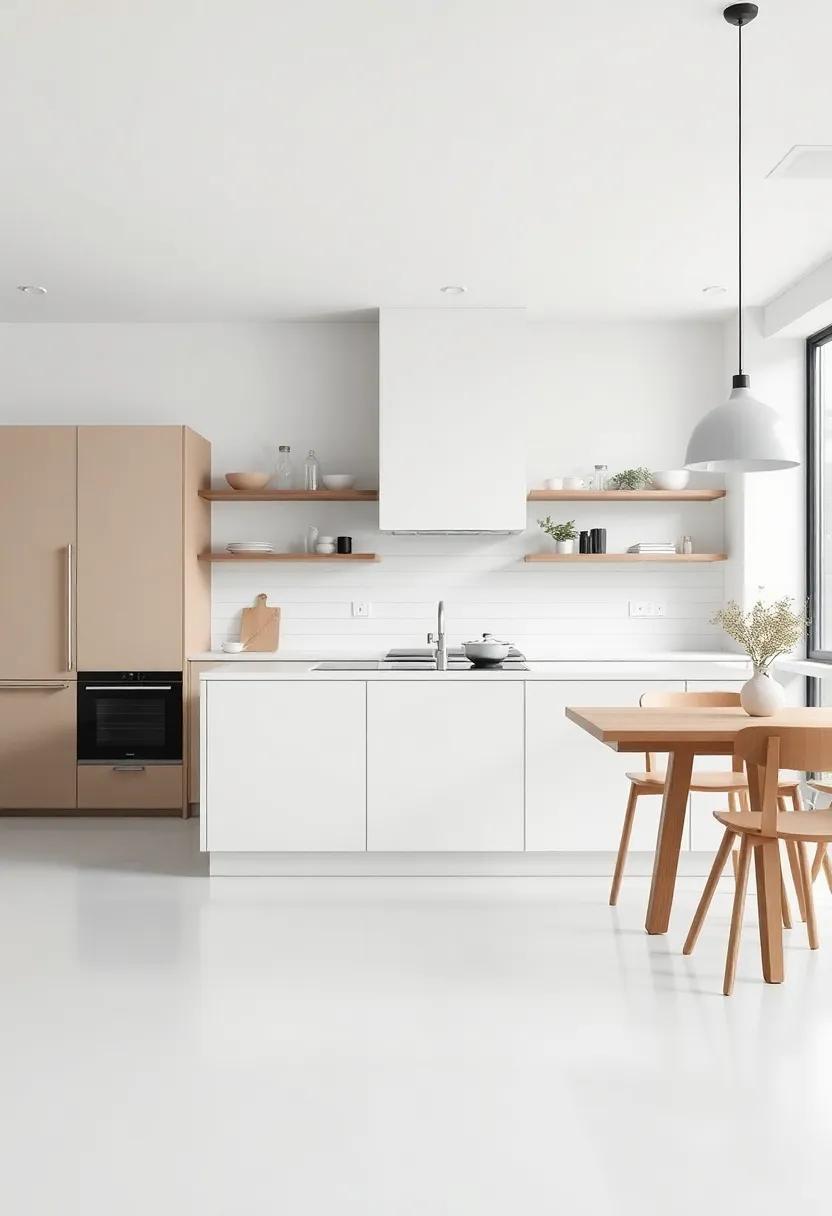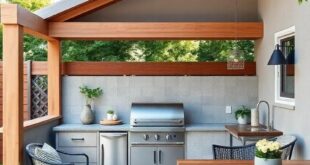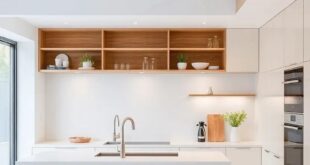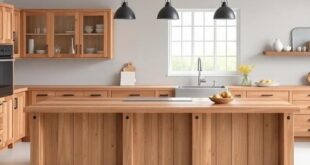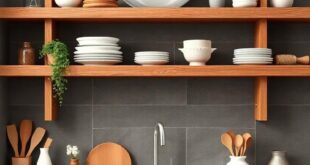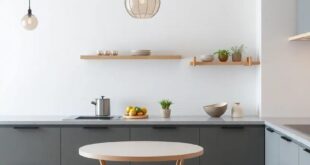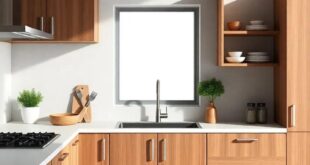In a world frequently enough chaotic and cluttered, the call to simplicity resonates stronger than ever, leading many to seek refuge in the clean lines and serene palettes of Scandinavian design. Embracing minimalism in the kitchen invites a refreshing shift, where form meets function, and beauty intertwines wiht practicality. This article explores the allure of Scandinavian kitchen interiors, delving into how their emphasis on minimalism fosters not just a stylish space, but also a lifestyle grounded in tranquility and purpose. from sleek cabinetry to earthy materials, join us as we uncover the essential elements that make Scandinavian kitchens a symbol of modern living—where every piece is intentional, and every moment is an possibility for creativity and connection. Let’s embark on this journey towards a more streamlined and harmonious culinary haven, discovering how the essence of minimalism can transform your kitchen into a sanctuary of simple pleasures.
Embracing The Essence Of Minimalism In Scandinavian Kitchen Design
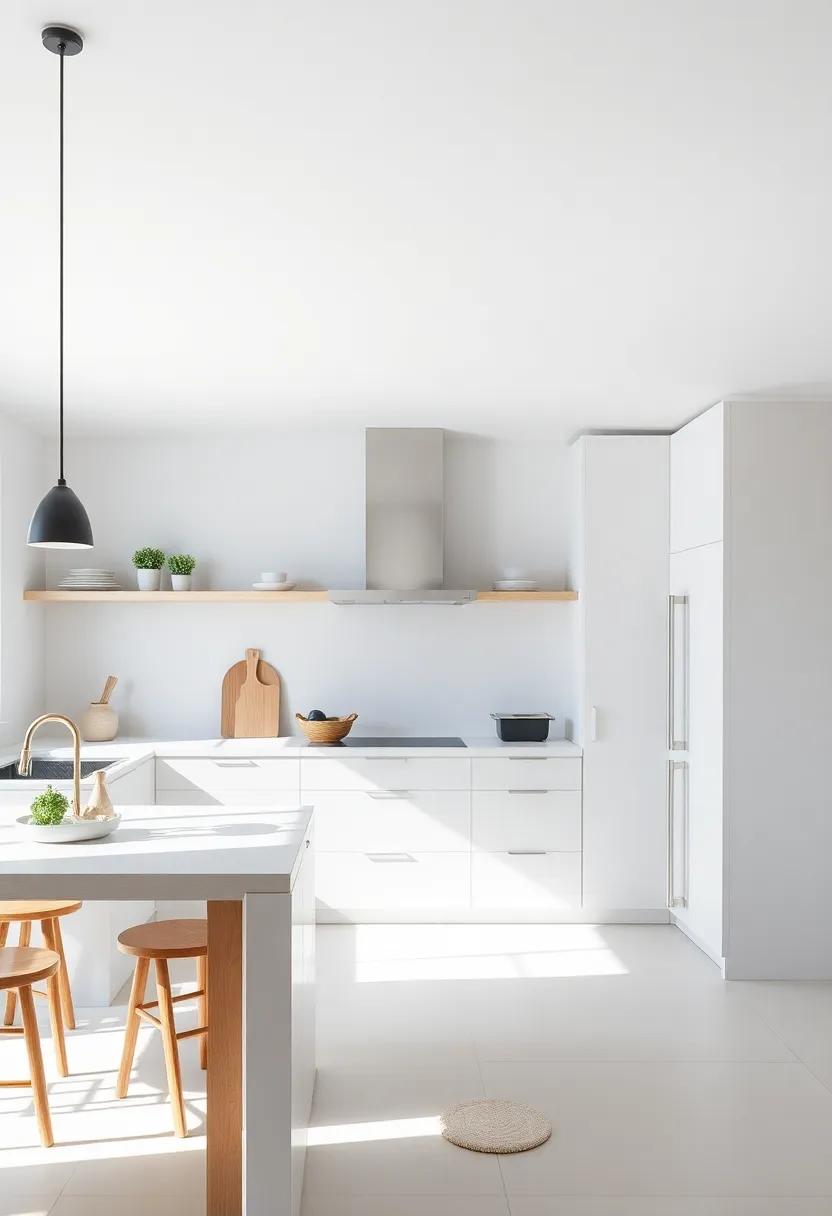
In the realm of kitchen design, Scandinavian aesthetics prioritize simplicity and functionality, stripping away excess to reveal sheer beauty in understated elegance. This approach celebrates a neutral color palette, often featuring soothing whites, soft grays, and earthy tones that evoke a sense of calm. To embrace this ethos,consider incorporating key elements such as:
- Natural Materials: use wood,stone,and metals for countertops,cabinetry,and flooring to create a warm,inviting habitat.
- Streamlined Furniture: Opt for sleek lines and minimal decor, focusing on practicality over ornamentation.
- Maximized Light: Enhance natural light with large windows and minimalist window treatments, which foster an airy atmosphere.
Another hallmark of Scandinavian design is the intentional use of space.By eliminating clutter and prioritizing essential items, each piece in the kitchen serves a dual purpose: functionality and aesthetic appeal. Consider the following design strategies to achieve this harmonious balance:
- open Shelving: Display only the moast necessary cooking items or artisan ceramics, encouraging mindfulness in your culinary space.
- Integrated Appliances: Hide larger items behind cabinetry or utilize built-in appliances to maintain a clean and cohesive look.
- smart Storage Solutions: Incorporate pull-out drawers and hidden compartments to keep surfaces uncluttered and organized.
Simplicity Meets Elegance: The Color Palette Of Scandinavian Kitchens
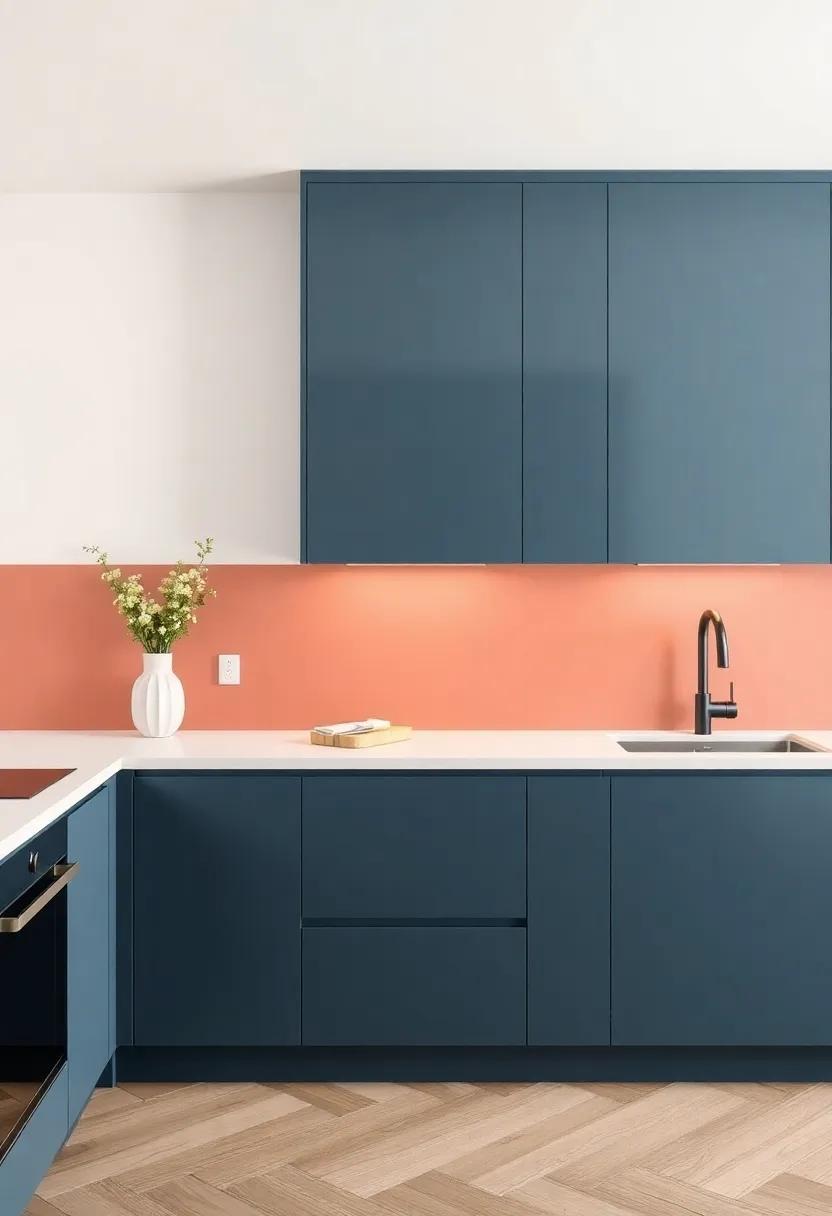
When exploring the essence of Scandinavian kitchens,one cannot overlook the subtle yet captivating color palette that defines this aesthetic. Characterized by a harmonious blend of soft neutrals and nature-inspired hues, these kitchens create an inviting atmosphere that promotes tranquility and mindfulness. Common colors include gentle whites, muted grays, and earthy tones like sage green and warm beige, all working in tandem to facilitate a sense of openness and simplicity. By incorporating varying shades in cabinetry, walls, and accessories, homeowners can achieve a beautifully layered look that feels both elegant and understated.
Using color strategically can enhance natural light and complement the functional yet stylish design elements typical of Scandinavian interiors. The importance of contrast should not be overlooked—pairing darker hues with lighter elements can create visual interest without overwhelming the space. Incorporating materials such as wood, metal, and stone in soft colors further accentuates the elegance of the kitchen.Here’s a rapid overview of popular color combinations in Scandinavian kitchens:
| color Pairing | Effect |
|---|---|
| Soft White & Pale Gray | Creates a clean, airy feel. |
| Earthy Beige & Forest green | Brings nature indoors, promoting calmness. |
| light Blue & Charcoal | Offers a serene yet dynamic contrast. |
| Muted Yellow & White | Infuses warmth and brightness into the space. |
Functional Aesthetics: The Role Of Open Shelving In Kitchen Design
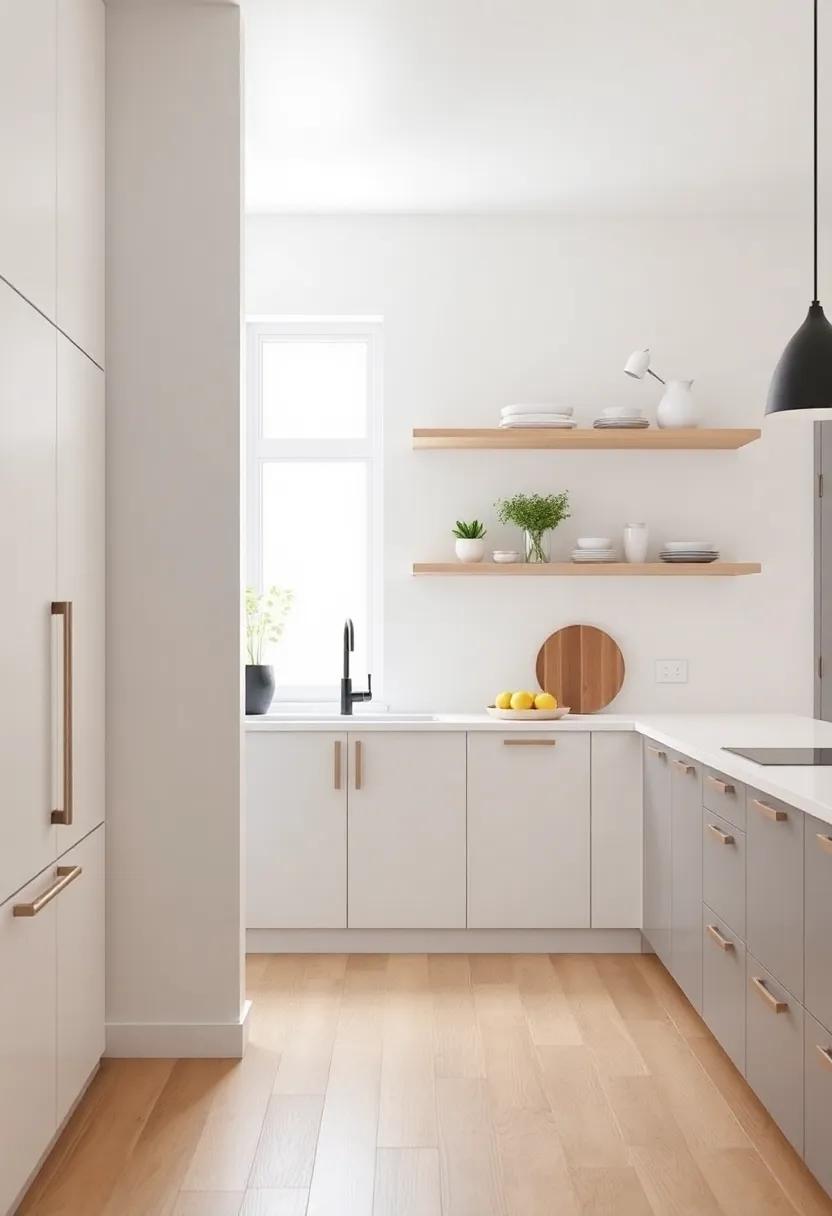
Open shelving introduces a breath of fresh air into kitchen design, merging aesthetics with functionality in a uniquely Scandinavian manner. By opting for open storage solutions, homeowners not only embrace the minimalist ethos but also create a sense of spaciousness and lightness. This design choice reflects a commitment to simplicity, allowing everyday items to become part of the decor. Consider the following advantages of incorporating open shelving:
- Visual Appeal: Displaying beautifully arranged dishes and glassware adds character and charm.
- Easy accessibility: Everyday essentials are within reach, promoting a streamlined cooking experience.
- Encourages Organization: The visible nature of shelves encourages a more curated collection,reducing clutter.
In a Scandinavian kitchen, open shelving can be especially powerful when combined with natural materials like wood and stone. These elements soften the starkness often associated with minimalism while enhancing the warmth of the space. to illustrate the ideal materials and styles, the following table presents a simple guide to harmoniously integrate open shelving into your kitchen:
| Material | Style | Color Palette |
|---|---|---|
| Oak | Rustic Charm | Warm Neutrals |
| Metal | Industrial Edge | Black & White |
| Glass | Modern Minimalism | Soft Pastels |
Natural Materials: Wood And Stone For A Timeless Kitchen Look
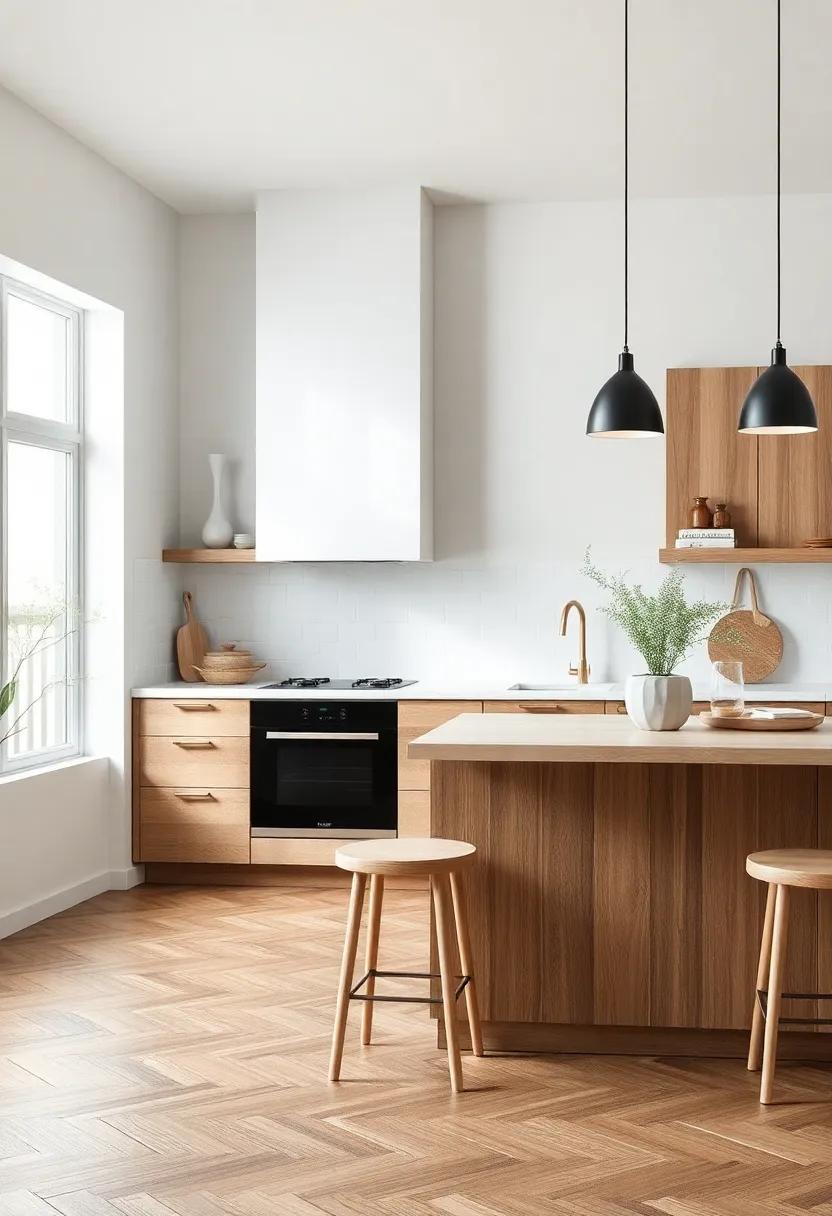
In crafting the perfect kitchen,the warmth of wood and the enduring appeal of stone create a foundation that resonates with the heart of Scandinavian design. These natural materials imbue the kitchen space with a sense of authenticity and connection to nature. The grain of wood not only brings warmth but also introduces a tactile dimension that is frequently enough missing in modern materials. From sleek birch cabinets to reclaimed oak countertops, the versatility of wood allows for endless customization, making every kitchen unique.
Stone, conversely, anchors a kitchen with its robust presence. Whether it’s a durable granite countertop or a chic marble backsplash, stone introduces a timeless elegance that ages gracefully. The interplay of textures between wood and stone can elevate the design while maintaining a minimalist aesthetic. Consider these key elements when integrating these materials:
- color Palette: Opt for soft, muted tones that complement the natural materials.
- Natural Finishes: Choose finishes that enhance the raw beauty of wood and stone.
- Functional Design: Ensure that every piece serves a purpose while enhancing the overall aesthetic.
| Material | Benefits | Popular Uses |
|---|---|---|
| Wood | Warmth, Texture | cupboards, Shelving |
| Stone | Durability, Elegance | Countertops, backsplashes |
light And Bright: Illuminating The Scandinavian Kitchen Space
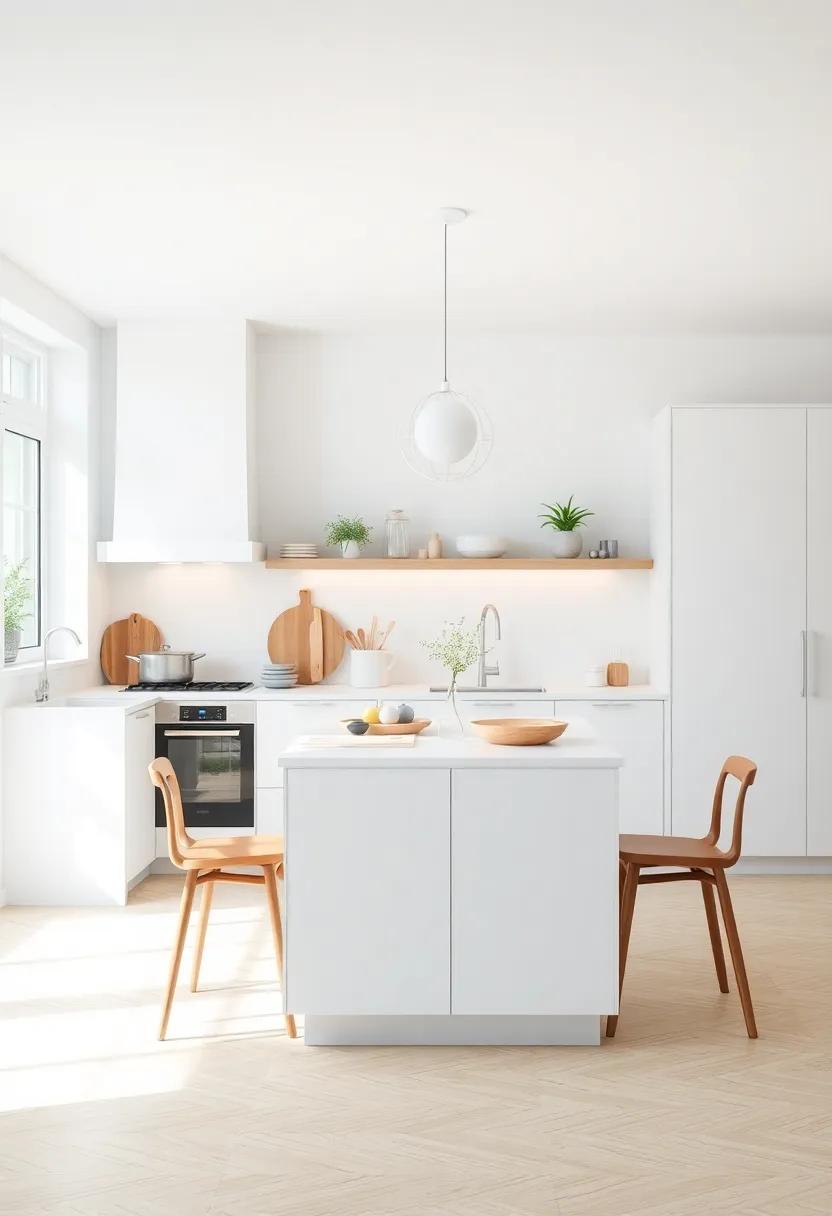
Incorporating natural light as a central feature of the Scandinavian kitchen transforms the space into a vibrant and inviting area. Large windows are a hallmark of this style, allowing sunlight to flood the room and accentuate the crisp, clean lines of minimalistic design. To enhance this illumination, the use of bright color palettes—mainly whites, pale blues, and soft grays—creates a seamless look that feels spacious and airy. Key elements that contribute to this effect include:
- Light-colored cabinetry: Often in matte finishes to avoid reflections.
- Reflective surfaces: Stainless steel appliances and polished countertops that bounce light around.
- obvious elements: glass doors or open shelving that showcase attractive dishware.
This design philosophy doesn’t shy away from incorporating organic materials,which played a crucial role in enhancing luminosity. Wood—especially lighter varieties like birch or pine—is integrally woven into the kitchen through flooring, cabinets, or decorative accents, providing warmth without compromising brightness. To successfully blend these materials, consider the following components:
- Natural textures: The use of textiles like linen or cotton for window treatments and table linens.
- Plants: Indoor herbs or greenery to bring life and a pop of color to neutral schemes.
- Functional accessories: Minimal yet stylish kitchen tools that serve a purpose while adding character.
Incorporating Nature: The Use Of Greenery In Kitchen Interiors
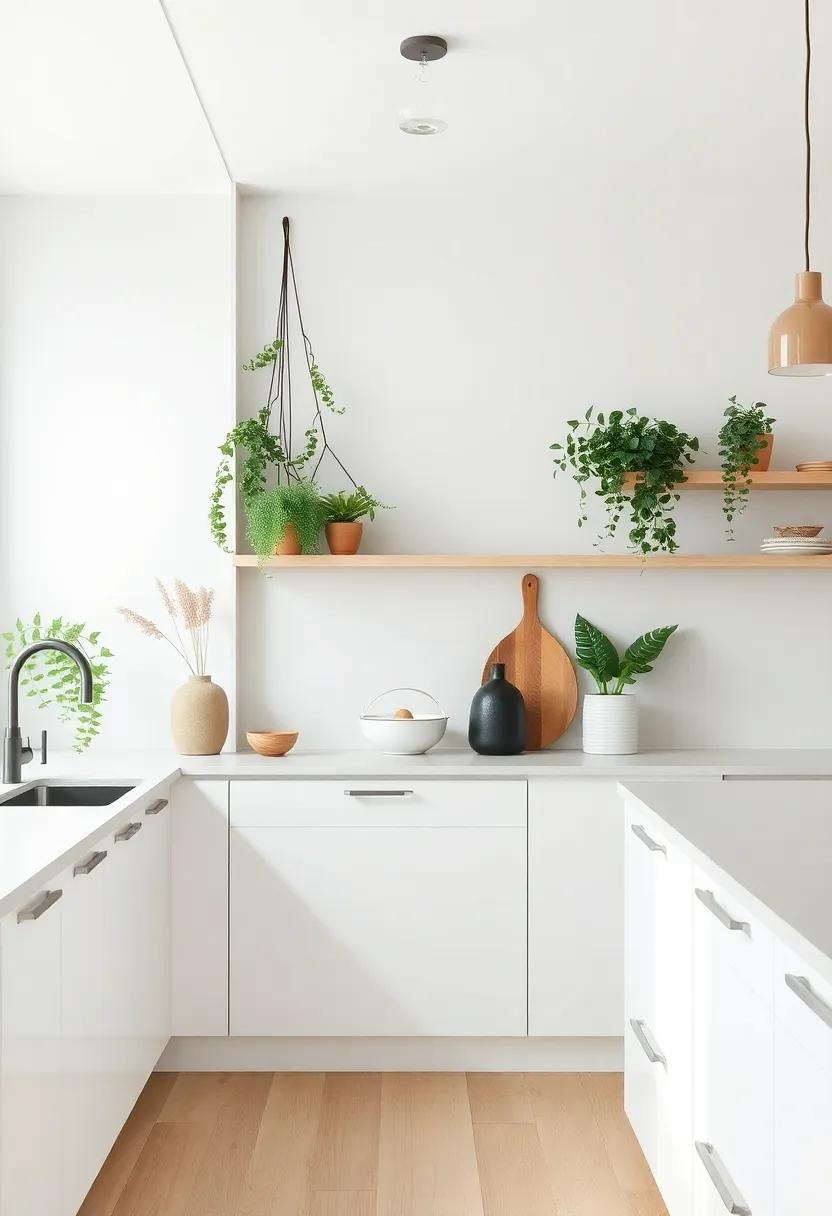
infusing natural elements into kitchen interiors not only elevates the aesthetic but also creates a serene cooking environment. potted herbs, such as basil and thyme, can serve dual purposes by adding fresh flavors to meals and acting as vibrant decor. Vertical gardens and hanging planters are particularly suitable for minimalist Scandinavian designs, providing a lush green backdrop without overwhelming the space. Incorporating greenery enhances air quality while inviting a sense of calm, vital for a space often bustling with activity.
To effectively weave nature into your kitchen,consider the following options:
- Windowsill Gardens: Utilize natural sunlight by growing small plants on your windowsills.
- Neutral Decor: Choose pots and planters in muted tones to harmonize with a minimalist palette.
- Multi-functional Furniture: Incorporate items like tables that feature built-in planter boxes.
Below is a brief comparison of popular greenery choices suitable for kitchen interiors:
| Plant Type | Benefits | Care level |
|---|---|---|
| Basil | Adds flavor, purifies air | Low |
| Spider Plant | Great air purifier | Easy |
| Aloe Vera | Medicinal uses, drought-resistant | Low |
Streamlined Appliances: Choosing The Right Kitchen Equipment
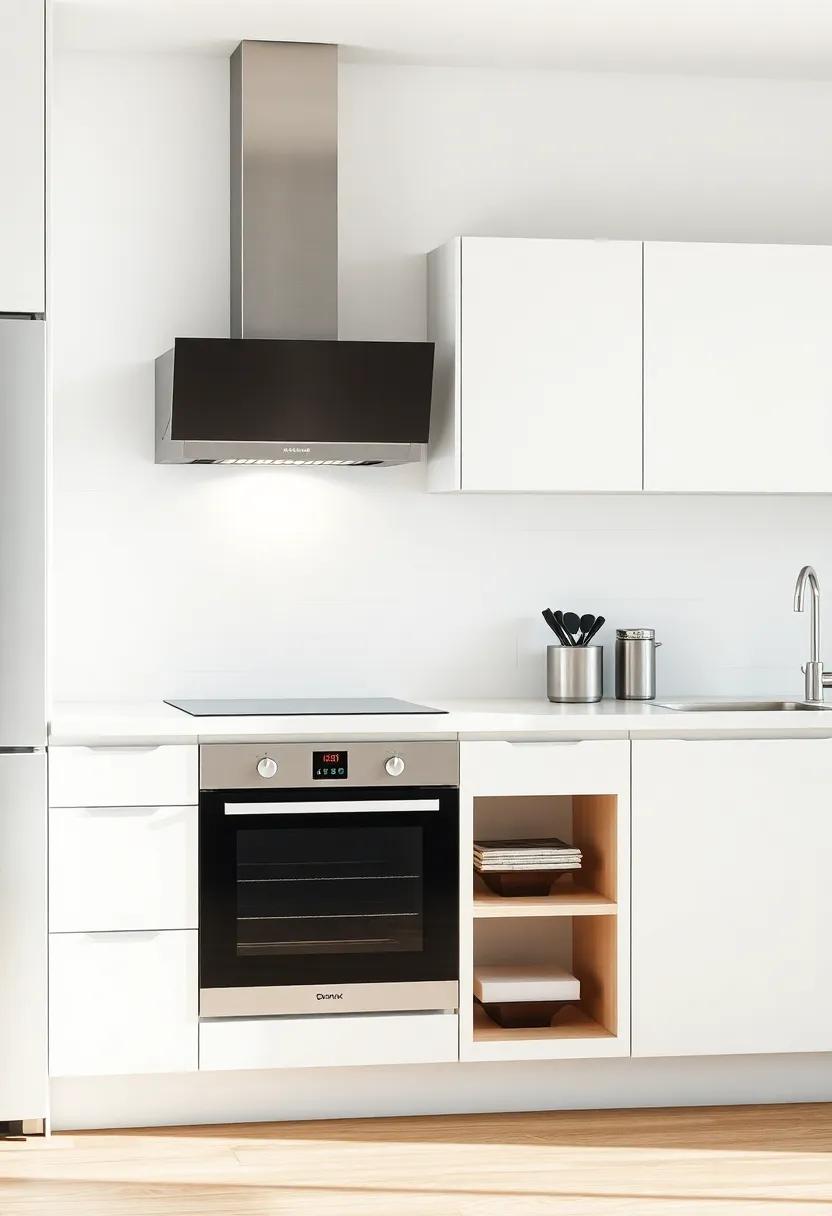
When curating a minimalist kitchen, its essential to select appliances that harmonize with the overall aesthetic while providing functionality and efficiency. Opt for multi-functional devices that reduce clutter and serve various purposes—like an all-in-one pressure cooker or a compact food processor. These streamlined options not only conserve space but also enhance your cooking experience by encouraging creativity and ease. Consider appliances in muted colors or sleek stainless steel designs that seamlessly integrate into the clean, crisp lines typical of Scandinavian interiors.
To assist in your selection, here’s a concise overview of essential kitchen equipment that aligns with this design philosophy:
| Appliance | Features | Benefits |
|---|---|---|
| Induction Cooktop | Fast heating, energy efficient | Reduces cooking time and energy consumption |
| Built-in oven | Space-saving design, self-cleaning options | Maximizes functionality while minimizing space use |
| Compact Refrigerator | Energy-efficient, minimalist style | Offers ample cooling without taking up too much room |
| Dishwasher Drawer | Eliminates the need for a full-size dishwasher | Fits comfortably in tight spaces, perfect for small households |
in choosing the right appliances, prioritize durability and timeless design that withstands trends. Investing in high-quality items that feature energy-saving technology not only aligns with minimalist values but also supports a sustainable lifestyle. Always keep in mind the balance between form and function, ensuring that each piece you select contributes positively to the serene ambiance and efficient workflow of your scandinavian-inspired kitchen.
Cohesion And Harmony: Achieving A Unified Kitchen Look
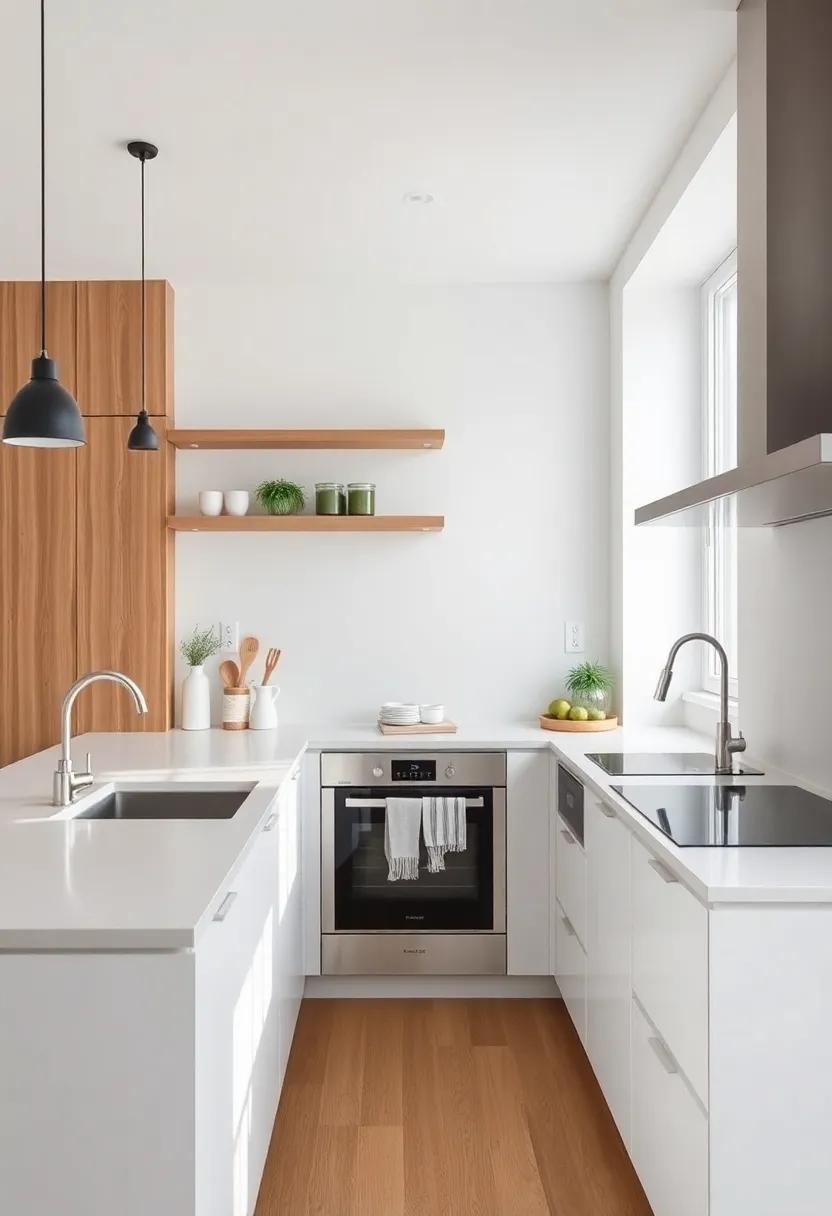
In a Scandinavian kitchen, the essence of minimalism is captured through a well-curated selection of materials and colors that promote elegance and simplicity. By opting for a cohesive color palette—think soft whites, muted grays, and natural wood tones—you can create a harmonious environment that invites effortless cooking and socializing. Key elements to consider include:
- Consistent Material Choices: Use similar finishes for cabinetry, countertops, and flooring to unify the space.
- Streamlined Accessories: Select a few essential utensils and decor pieces that enhance functionality without cluttering.
- Natural Light: Embrace large windows and open layouts to encourage light and airiness throughout the kitchen.
To further enhance the unified aesthetic,consider incorporating a monotone backsplash and seamlessly integrated appliances that contribute to the overall simplicity. A well-organized layout enables a smooth workflow,allowing each element to serve its purpose while maintaining an attractive visual appeal. An organized pantry or sleek shelving can also promote clarity and accessibility, making every meal preparation experience pleasurable. below is a brief overview of essential features that contribute to an appealing Scandinavian kitchen:
| Feature | Description |
|---|---|
| White Cabinetry | Creates a bright and airy feel, enhancing light reflection. |
| Natural textures | Adds warmth,making the space inviting and cozy. |
| Open Shelving | Encourages organization while displaying beautiful dishware. |
| Indoor Plants | Brings a touch of nature indoors, contributing to a serene atmosphere. |
Texture And Contrast: Balancing Smooth And Rustic Surfaces
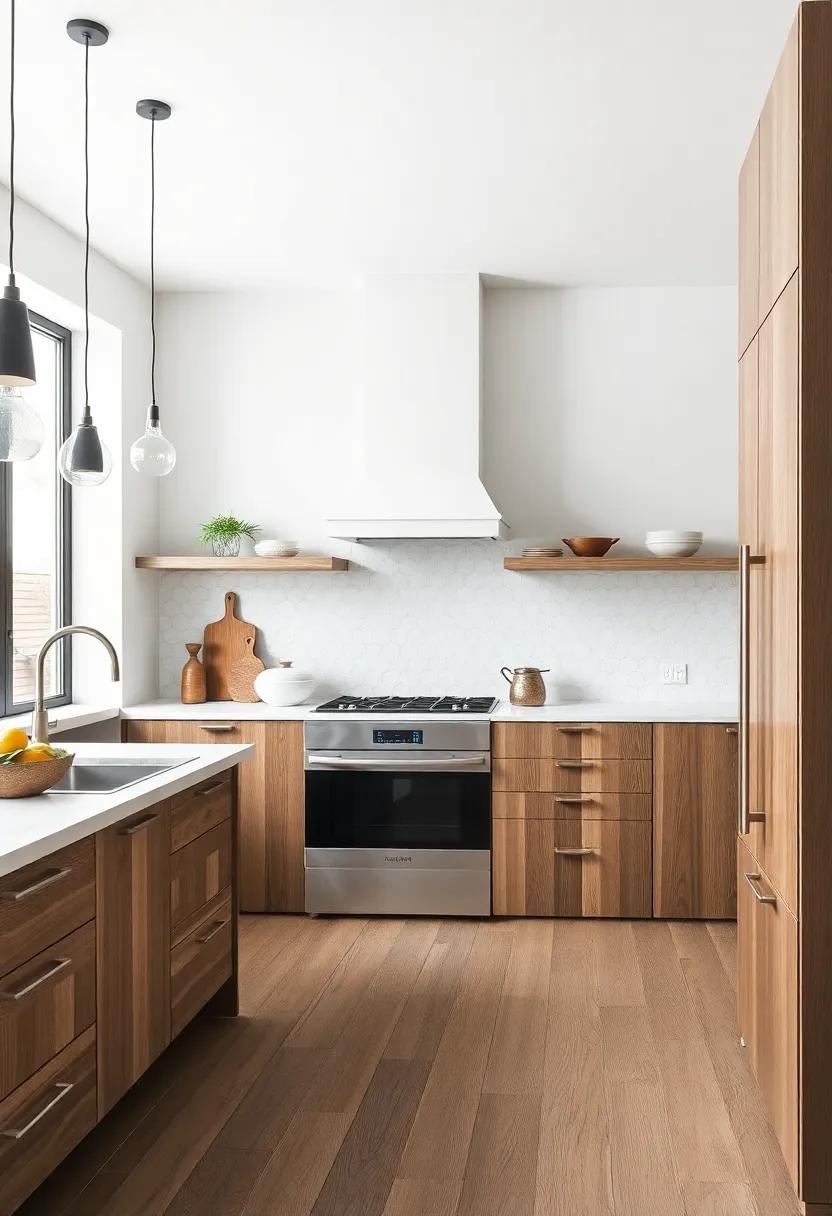
In Scandinavian kitchen design, achieving a harmonious blend of smooth and rustic surfaces is crucial for creating an inviting atmosphere. Bold textures like reclaimed wood beams or stone accents can coexist beautifully with sleek,modern cabinetry and polished surfaces. This juxtaposition not only adds depth but also creates a narrative of comfort and simplicity. By strategically placing elements like a distressed wooden dining table alongside glossy white cabinets, the overall aesthetic becomes more dynamic and visually intriguing. Wraparound countertops in a soft finish can further soften the hard lines of modern appliances, ensuring a balanced yet cohesive look.
To explore the interplay of these contrasting surfaces effectively, consider incorporating a variety of materials in your design.Here are a few to consider:
- Natural Wood: Rich in warmth, perfect for open shelving or tabletops.
- Concrete: Offers an industrial touch that pairs well with softer furnishings.
- Glass: Provides transparency, allowing the rustic elements to shine without overwhelming the space.
- Metals: Stainless steel appliances enhance the sleekness of the kitchen while complementing rustic woods.
For a more structured approach, consider how these elements interact in various configurations.The following table outlines potential surface pairings to inspire your design choices:
| Surface Type | Complementary Pairing | Effect |
|---|---|---|
| Reclaimed Wood | White Quartz | Warm and inviting |
| Polished Concrete | Brushed Brass | Modern elegance |
| Textured Brick | Clear Glass | Open and airy |
| Rustic Stone | Smooth Corian | Natural balance |
Embracing Space: The Importance Of Open Floor Plans
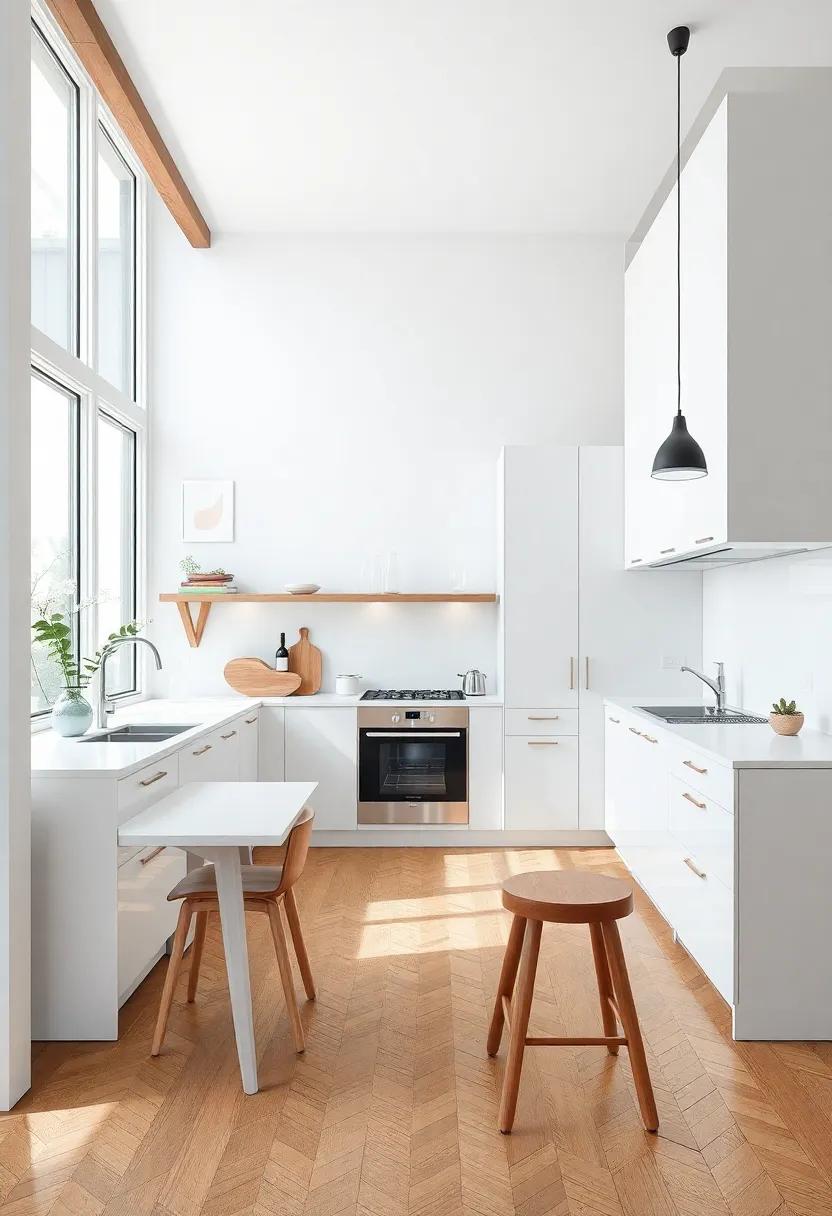
An open floor plan seamlessly integrates various living spaces, creating a fluid environment where functionality meets aesthetic appeal. This design style is deeply rooted in the Scandinavian ethos, prioritizing simplicity and the idea of less being more. With fewer walls, natural light streams through the entire space, amplifying a sense of openness and connection. Key elements of this approach include:
- Uninterrupted Sightlines: The removal of barriers allows for unobstructed views that enhance the spatial experience.
- Flexible Space Usage: An adaptable layout accommodates both cozy family gatherings and larger social events.
- Enhanced Natural Light: Flooding spaces with light fosters warmth and a welcoming atmosphere.
This flowing design does not merely beautify; it brings families together, forming a communal hub for creativity and interaction. In the context of a Scandinavian kitchen, the open layout invites collaboration, whether cooking a family meal or enjoying an intimate coffee break. Additionally, the benefits of this layout include:
| Benefit | Description |
|---|---|
| Increased Interaction | Creates effortless communication between family members. |
| Minimized Clutter | encourages a tidy, minimalist environment, aligning with Scandinavian values. |
| Design Versatility | Allows for various décor styles without compromising flow. |
Cultural Influences: Scandinavian Design Traditions In The Kitchen
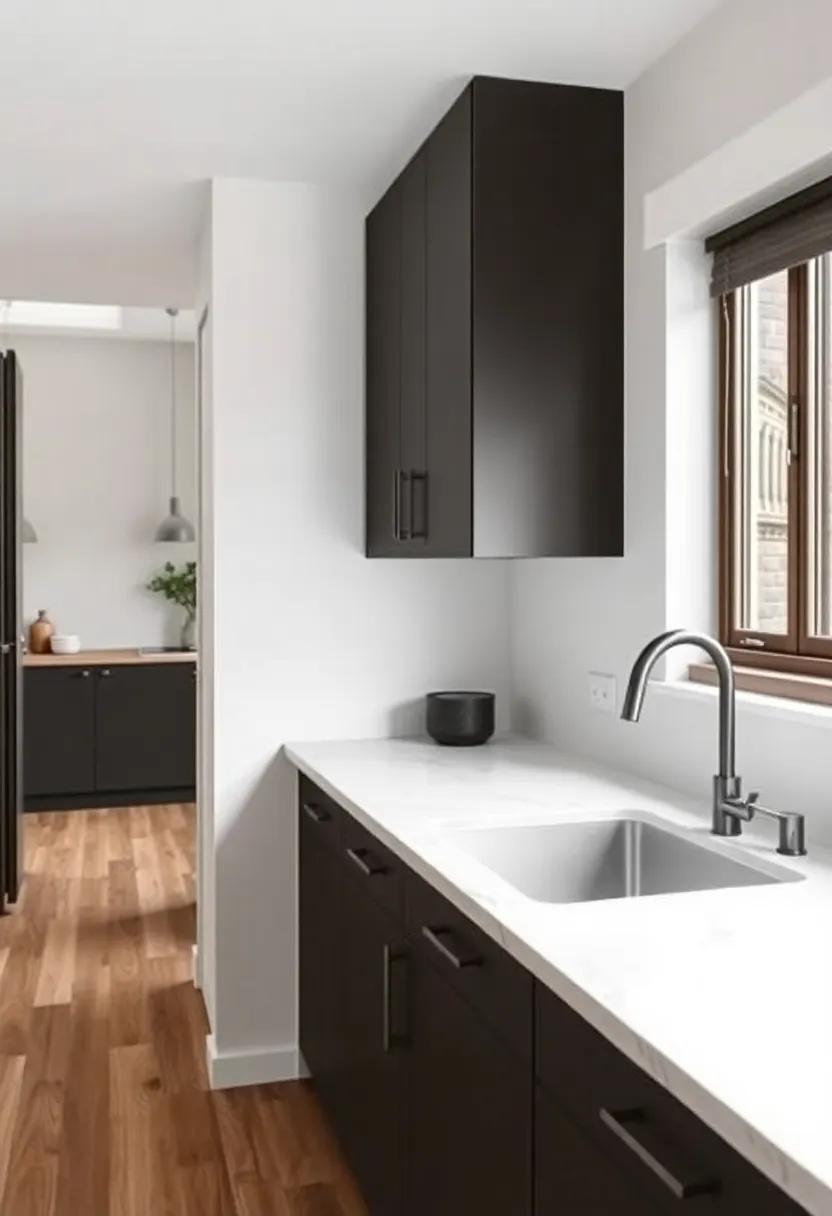
Scandinavian design isn’t just a trend; it’s a philosophy that emphasizes simplicity, functionality, and an intrinsic connection to nature. In the kitchen,this translates to spaces that are not only beautiful but also highly efficient. Key aspects of this design ethos include:
- Natural Materials: Wood, stone, and metal elements are often utilized to create warmth and a tactile experience.
- Neutral Color Palettes: Soft whites, grays, and earthy tones promote a serene and inviting atmosphere.
- Smart Storage Solutions: Hidden storage and ergonomic designs help maintain a clutter-free environment.
The influence of Scandinavian culture in kitchen design also extends to the way these spaces are utilized. Gatherings around a minimalist dining table are common, encouraging connection and communication. In addition, the importance of light plays a crucial role, with large windows or cleverly placed lighting enhancing the sense of openness. Here are some elements that contribute to the overall aesthetic:
| Element | Purpose |
|---|---|
| Open Shelving | Showcases dishware while keeping essentials at hand. |
| Functional Accessories | Combines beauty and practicality, like a stylish cutting board. |
| Earthy Textiles | Adds warmth and texture, enhancing the overall atmosphere. |
Artful Organization: Designing With Purpose And Intent
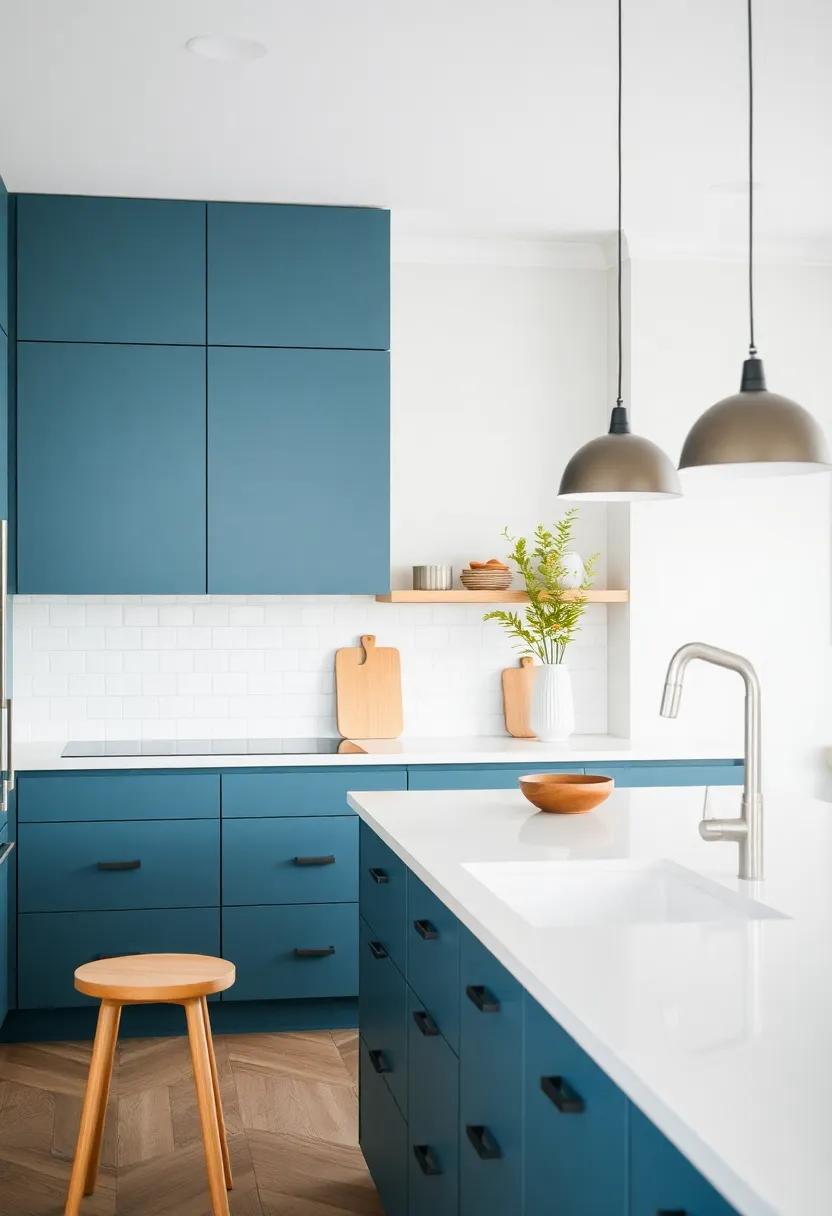
In a Scandinavian kitchen,the philosophy of design revolves around simplicity and functionality. this approach transforms everyday cooking spaces into a sanctuary of calm and inspiration. Incorporating elements that serve a clear purpose not only enhances organization but also promotes a sense of tranquility. When every item has its place, clutter is minimized, allowing for a seamless flow during cooking and entertaining.Well-chosen materials such as light woods, sleek metals, and soft textiles harmoniously blend together, creating an inviting atmosphere that welcomes creativity and nurtures communal experiences.
Thoughtfully curated storage solutions play a crucial role in achieving this ideal balance. Open shelving and multi-functional furniture invite personal expression while ensuring that essentials are easily accessible. Consider these elements for an artful Scandinavian kitchen:
- Natural light: Amplifies warmth and enhances organic materials.
- Neutral color palettes: Encourages a soothing environment.
- Smart storage: Keeps countertops clear and organized.
- Textural variety: Connects modern functionality with timeless comfort.
| Element | Purpose |
|---|---|
| Open Shelving | Showcase beautiful dishware while keeping items within reach. |
| Multi-functional Islands | Provide extra workspace and storage,encouraging social interaction. |
| Minimalist Appliances | Maintain a clean aesthetic while ensuring efficient performance. |
the Beauty Of Handmade: Unique Artisan elements In Kitchen Design
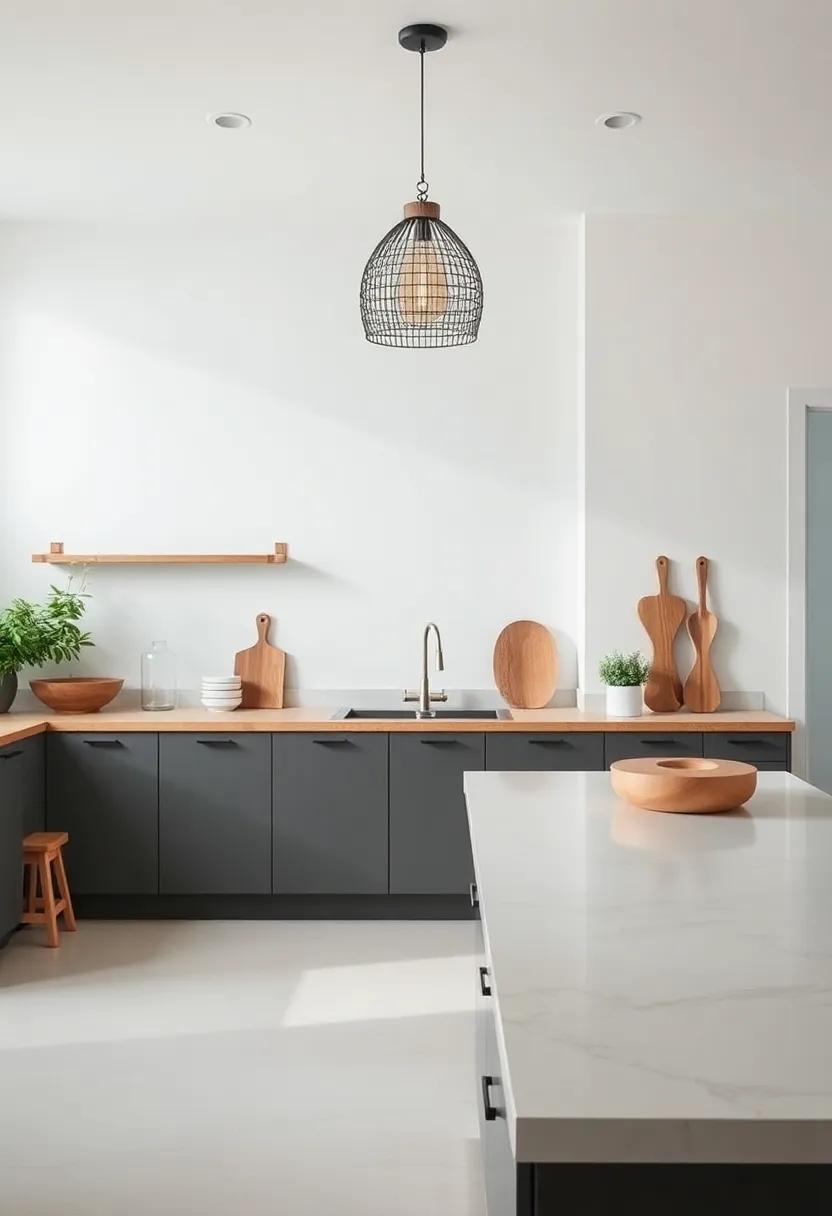
In the heart of every Scandinavian kitchen lies a celebration of artisanal craftsmanship, where handmade elements infuse each space with personality and warmth. The beauty of unique, locally sourced items adds depth to the minimalist aesthetic, creating a harmonious balance between functionality and artistry.Incorporating features such as handcrafted wood countertops, custom ceramic dishware, and artisanal lighting fixtures can transform your kitchen into a welcoming haven that reflects both your taste and the warmth of human touch. These elements not only serve a purpose but also tell a story, connecting the space with the rich traditions of craftsmanship.
The interplay of textures and colors in artisan pieces also enhances visual interest while maintaining the clean lines typical of Scandinavian design. Consider integrating handmade textiles or bowls into your kitchen decor as thoughtful accents. In choosing these unique pieces, you support local artisans and contribute to a sustainable lifestyle. Here are a few artisan elements that beautifully complement a Scandinavian kitchen:
- Handcrafted Pottery: Unique bowls and plates that add character.
- Natural Wood Accents: Custom shelves or cutting boards made from local woods.
- Artisan Fabrics: handwoven linens for a cozy touch.
- Vintage Finds: One-of-a-kind decor items with a story.
Mindful Consumption: Choosing Sustainable Kitchen Products
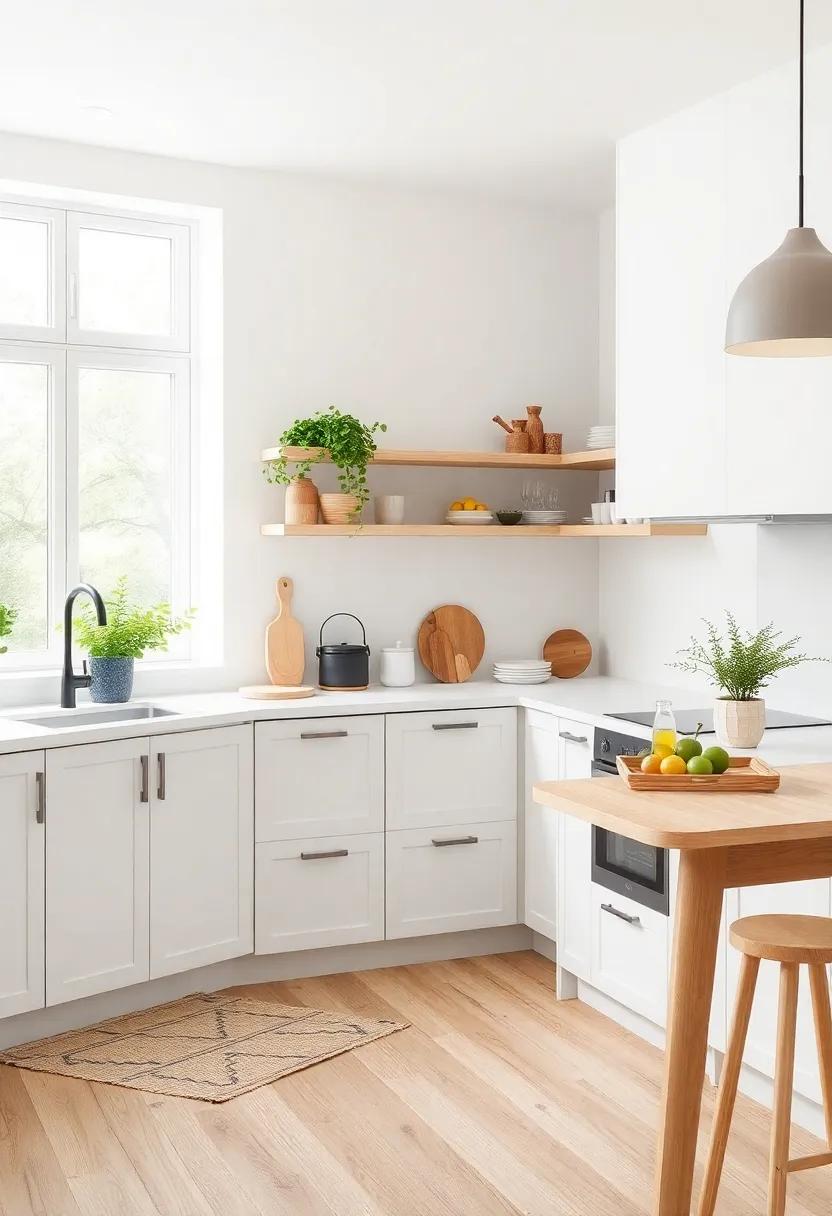
In the quest for a serene and simple kitchen that embodies Scandinavian design, the choice of products plays a crucial role. Mindful consumption encourages us to select items that not only contribute to an aesthetically pleasing space but also reflect our commitment to sustainability.Consider opting for bamboo utensils, which are both stylish and eco-amiable, or glass storage containers that minimize plastic use while maximizing visual appeal.
To further enhance the sustainable aspect of your kitchen, explore brands dedicated to environmentally friendly practices. Look for products with certifications like Fair Trade, Organic, or B Corp, ensuring that your purchases support ethical sources. Here’s a quick overview of materials and their benefits:
| Material | Benefits |
|---|---|
| Wood (Bamboo) | Renewable, durable, biodegradable |
| Glass | Non-toxic, recyclable, long-lasting |
| Stainless Steel | Durable, recyclable, resistant to rust |
| Ceramic | Non-toxic, heat resistant, stylish |
By selecting kitchen products that align with these principles, you can create a harmonious space that not only looks good but also feels good to use. Such choices contribute to a healthier planet while embracing the minimalist philosophy of Scandinavian design.
The Impact Of Lighting: Natural Versus Artificial Solutions
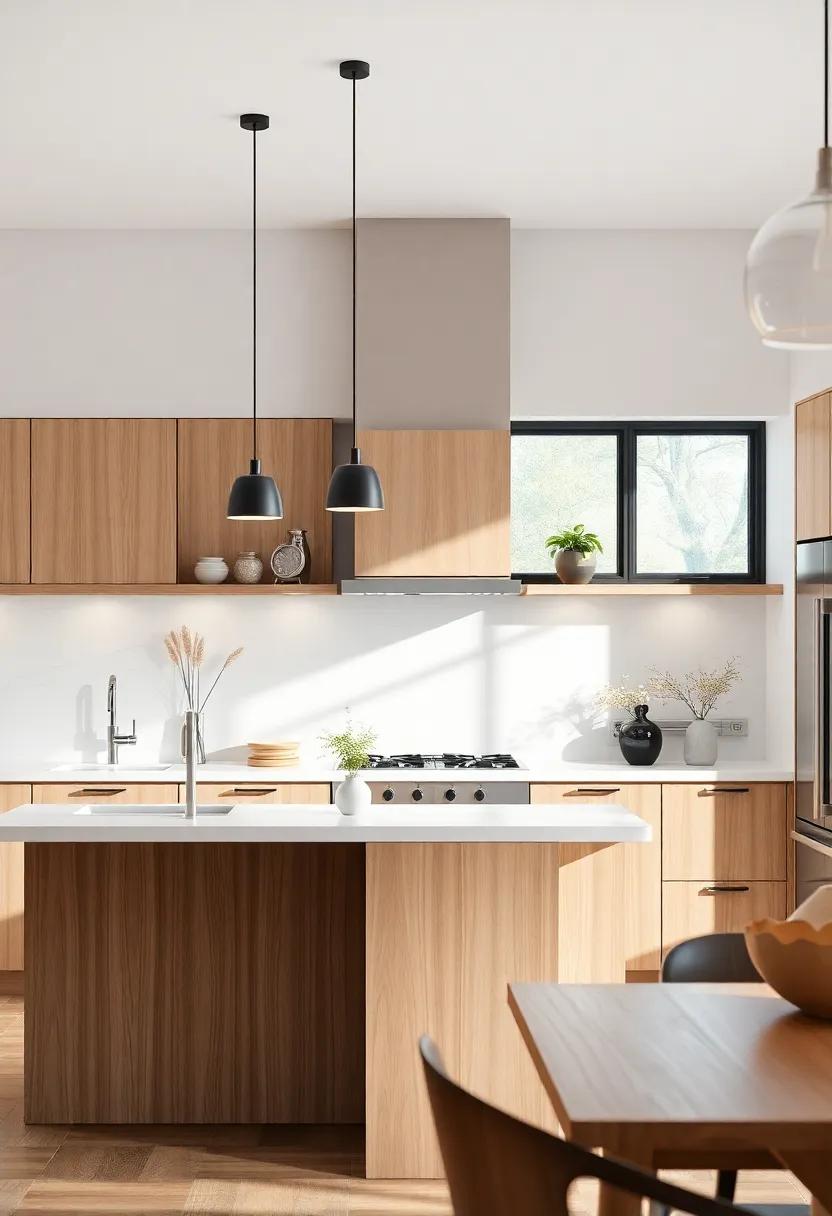
In the realm of Scandinavian kitchen design,the choice of lighting plays a pivotal role in enhancing the overall ambiance and aesthetic. Natural light is revered for its ability to create an airy and open feel,effortlessly blending the indoors with the outdoors. large windows, skylights, and glass doors invite sunlight to dance across surfaces, illuminating the warm tones of wood and muted palettes typical of Scandinavian interiors. Some key benefits of natural lighting include:
- Enhanced Mood: Natural light can elevate spirits and create a more inviting atmosphere.
- Energy Efficiency: Reducing reliance on artificial lighting lowers energy costs.
- Focus on Simplicity: Natural light highlights minimalist design, emphasizing clean lines and the beauty of functional elements.
On the flip side, artificial lighting offers the flexibility needed to achieve various effects and moods, particularly in the evenings or during long winter months when natural light is scarce. Modern Scandinavian kitchens often utilize layered lighting techniques that incorporate ambient, task, and accent lighting to create a dynamic space. Consider the following advantages of artificial solutions:
- Customizability: Choose from a variety of angles and intensities to suit specific tasks.
- Highlighting Elements: Focus on décor, textures, and materials that define minimalism.
- cozy Atmosphere: Soft, warm lighting can create an inviting and intimate environment.
Personal Touches: Incorporating Family Heirlooms And Art
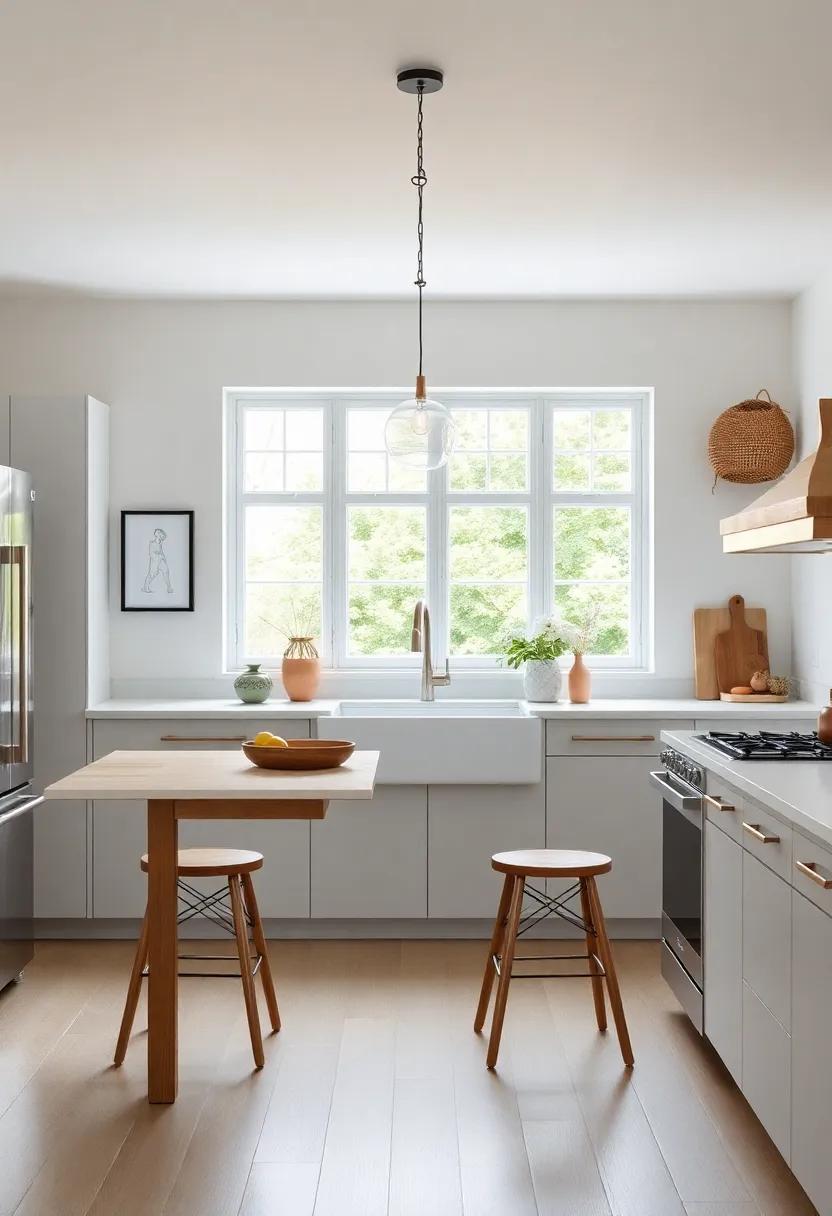
In a scandinavian kitchen that champions minimalism, family heirlooms and art can add an unexpected warmth and character, creating a bridge between the stark simplicity of modern design and the rich narratives of the past. Imagine a beautifully crafted wooden bowl, passed down through generations, placed on a sleek countertop; its organic texture softening the linearity of contemporary cabinetry. Or hang a framed family recipe, written in an elegant script, as a tribute to cherished culinary traditions. These personal touches redefine the concept of minimalism by showcasing authenticity and making the space truly yours.
to seamlessly integrate these elements into your kitchen, consider these guidelines:
- Choose meaningful items: Select heirlooms that resonate with your family’s history to maintain a sense of personal significance.
- Balance aesthetics: Arrange art and heirlooms in a way that complements the kitchen’s color palette and design scheme.
- Mix old and new: Pair antique pieces with modern kitchenware to create a dynamic visual contrast that keeps the space vibrant.
| Item Type | Suggested Locations |
|---|---|
| Heirloom Kitchen Tools | Open Shelves or Hanging Racks |
| Framed Family Recipes | Wall Space Above Counter |
| Vintage Tableware | Display Cabinets |
Using these personal touches enhances the Scandinavian kitchen experience. Allowing the stories of your family to resonate within the minimalist design not only enriches the aesthetic but also infuses the space with a sense of history and belonging, fostering a cozy atmosphere without compromising elegance.
The comfort Of Minimalism: Creating Warmth In A Simple Space
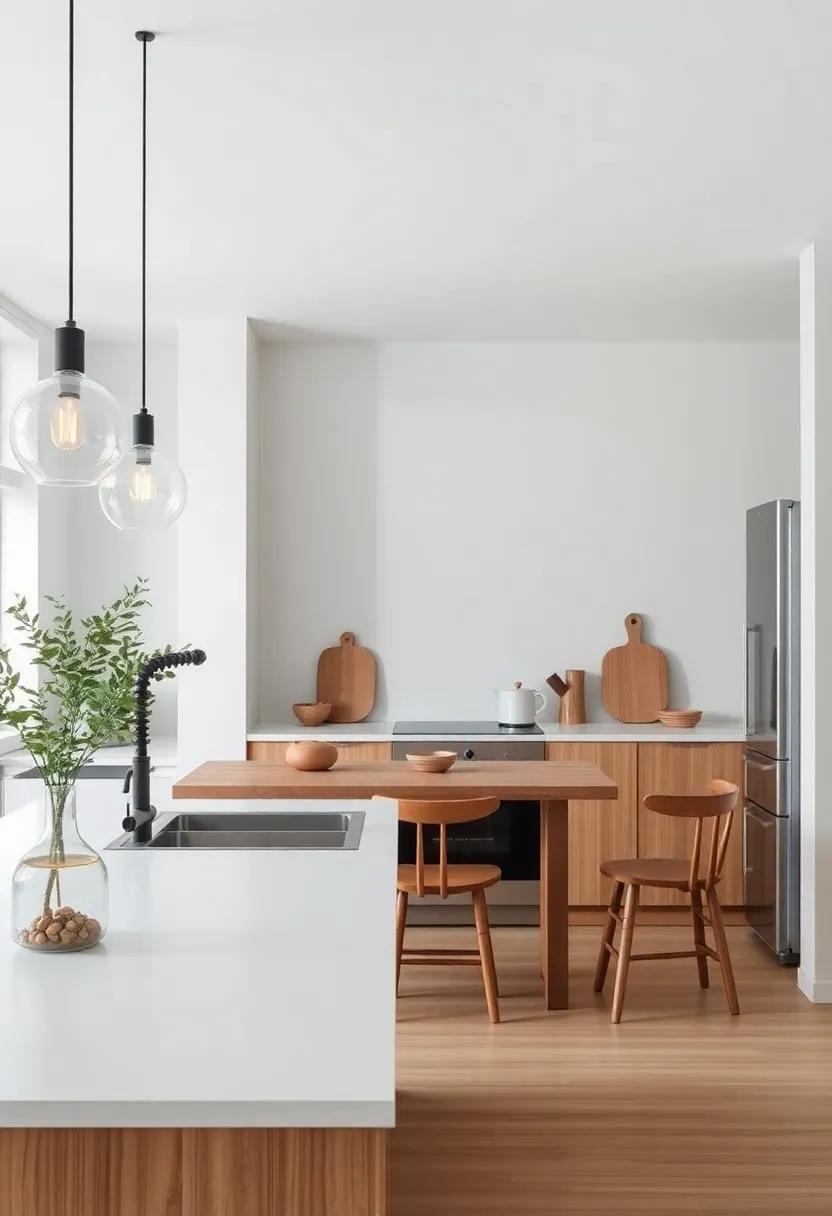
In the pursuit of simplicity, Scandinavian kitchens embody a soothing aura that transforms everyday cooking into a serene experience. When stripped of excess, these spaces invite warmth through a harmonious blend of natural materials, soft hues, and functional design. Wood elements subtly ground the environment, while white and neutral tones open up the room, making it feel more expansive. Accents of greenery, brought in through potted herbs or fresh flowers, breathe life into the simplicity, providing a splash of color that draws the eye without overwhelming the senses.
To foster a sense of coziness in your minimalist kitchen, consider focusing on a few essential elements that enhance comfort without cluttering. Consider integrating:
- Warm lighting: Soft LED fixtures create a welcoming glow, perfect for evening meals.
- textured textiles: Incorporating cotton or linen kitchen towels can add tactile warmth.
- Functional decor: Simple yet beautiful dishware displayed on open shelves can serve both utility and aesthetic purposes.
Crafting a minimalist space doesn’t mean sacrificing personal touches. Instead, it encourages the curation of cherished items that resonate with you, ensuring your kitchen remains both functional and reflective of your unique personality.
Inviting Simplicity: Welcoming Guests Into A Thoughtfully Designed kitchen
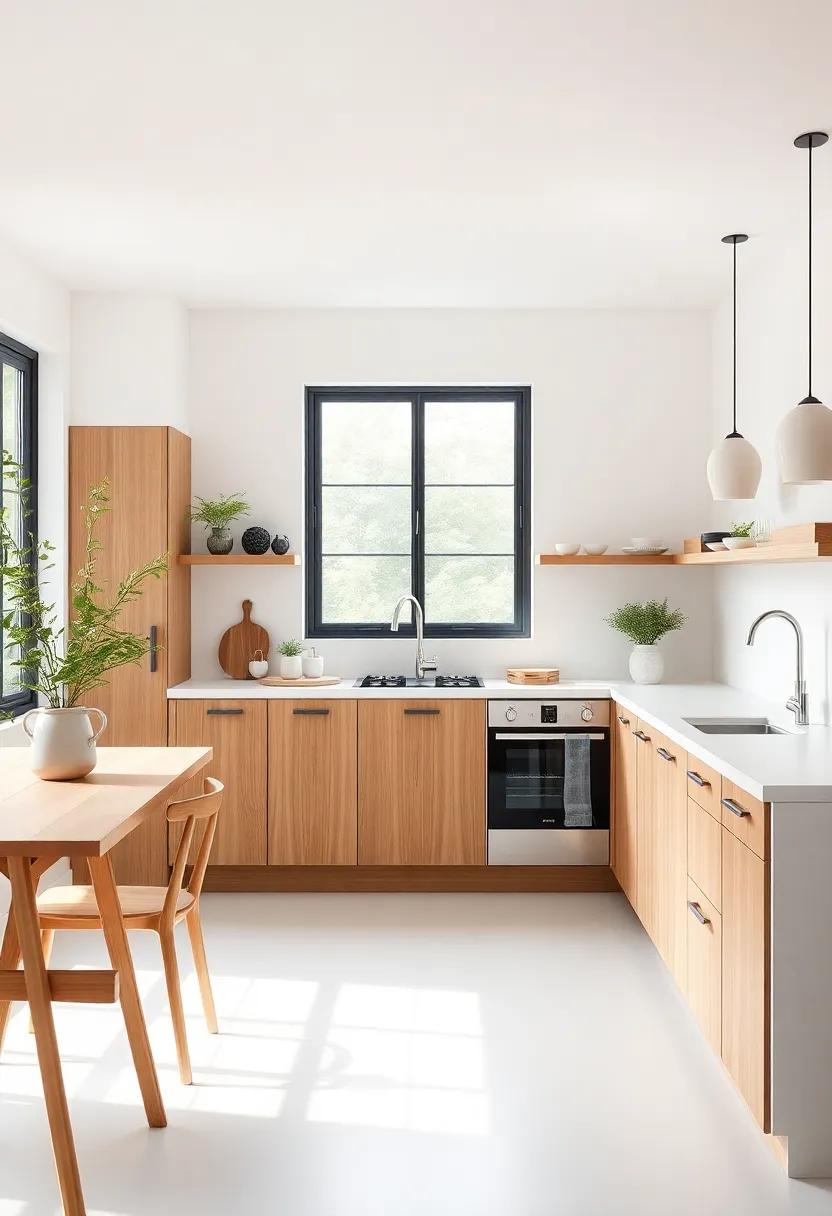
in a world that often feels cluttered and chaotic, a kitchen designed with simplicity in mind can serve as a peaceful sanctuary. Scandinavian kitchens effortlessly blend function with form, encouraging an atmosphere where guests instantly feel at ease.The use of neutral palettes and natural materials—think light woods, soft whites, and muted grays—invites an organic connection to the surrounding environment. This harmonious design is further enhanced by minimalistic decor and well-organized storage solutions, allowing the beauty of each element to shine without distraction.
The layout of a Scandinavian kitchen frequently enough prioritizes open spaces and intuitive designs, which fosters fluid movement and encourages collaboration. Essential features include:
- Large countertops: Perfect for meal prep and informal gatherings.
- Elegant lighting: Soft, warm lights create a welcoming ambiance in the evenings.
- Functional storage: Seamlessly integrated cabinets ensure that everything has a designated space, eliminating visual clutter.
When guests step into such an inviting space, they are drawn not just to the aesthetic, but also to the feeling of calm that simplicity can nurture. It’s a design philosophy that speaks volumes through its quiet sophistication.
Timeless Trends: What Makes Scandinavian Kitchens Enduringly Popular
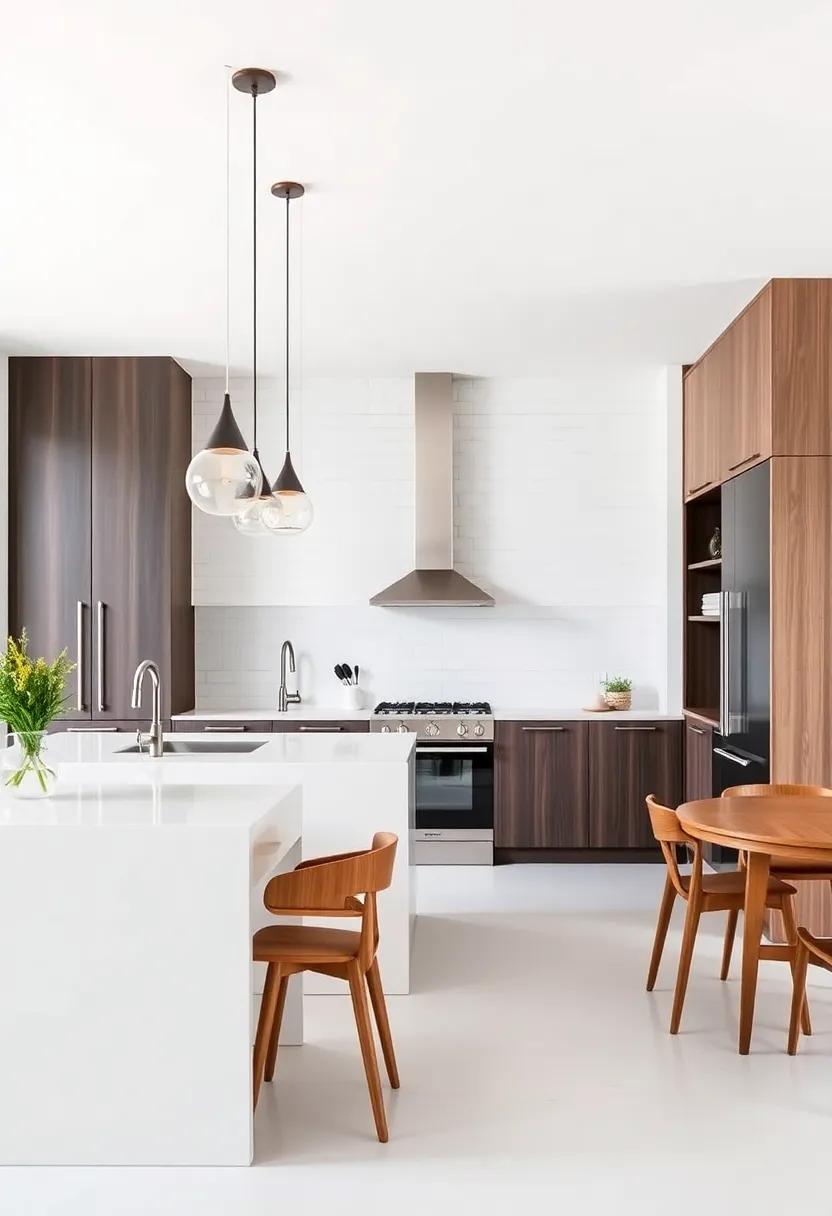
The enduring popularity of Scandinavian kitchens can be attributed to their seamless blend of functionality and aesthetics. Characterized by clean lines, natural materials, and neutral color palettes, these kitchens create a calming environment that appeals to our longing for simplicity.The emphasis on practicality ensures that every element serves a purpose, making these spaces not just beautiful but also highly efficient. This philosophy resonates deeply in modern design, where less truly becomes more, and the artistry lies in subtlety rather than excess.
Along with their minimalist appeal, Scandinavian kitchens frequently enough embrace sustainability, using eco-friendly materials and energy-efficient appliances. This consideration for the environment enhances their allure, appealing to conscious consumers who prioritize both style and ethics. The timelessness of Scandinavian design is further highlighted by elements such as:
- Wood accents: Adding warmth and texture.
- Simple hardware: Enhancing the sleek look without distraction.
- Natural light: Maximizing brightness with large windows.
- Open layouts: Promoting social interaction and accessibility.
Ultimately, the Scandinavian kitchen represents a lifestyle choice—one that favors aesthetics without sacrificing functionality, reflecting a balanced approach to living that remains desirable through changing design trends.
mood Enhancements: Colors And Textures That Inspire Calm
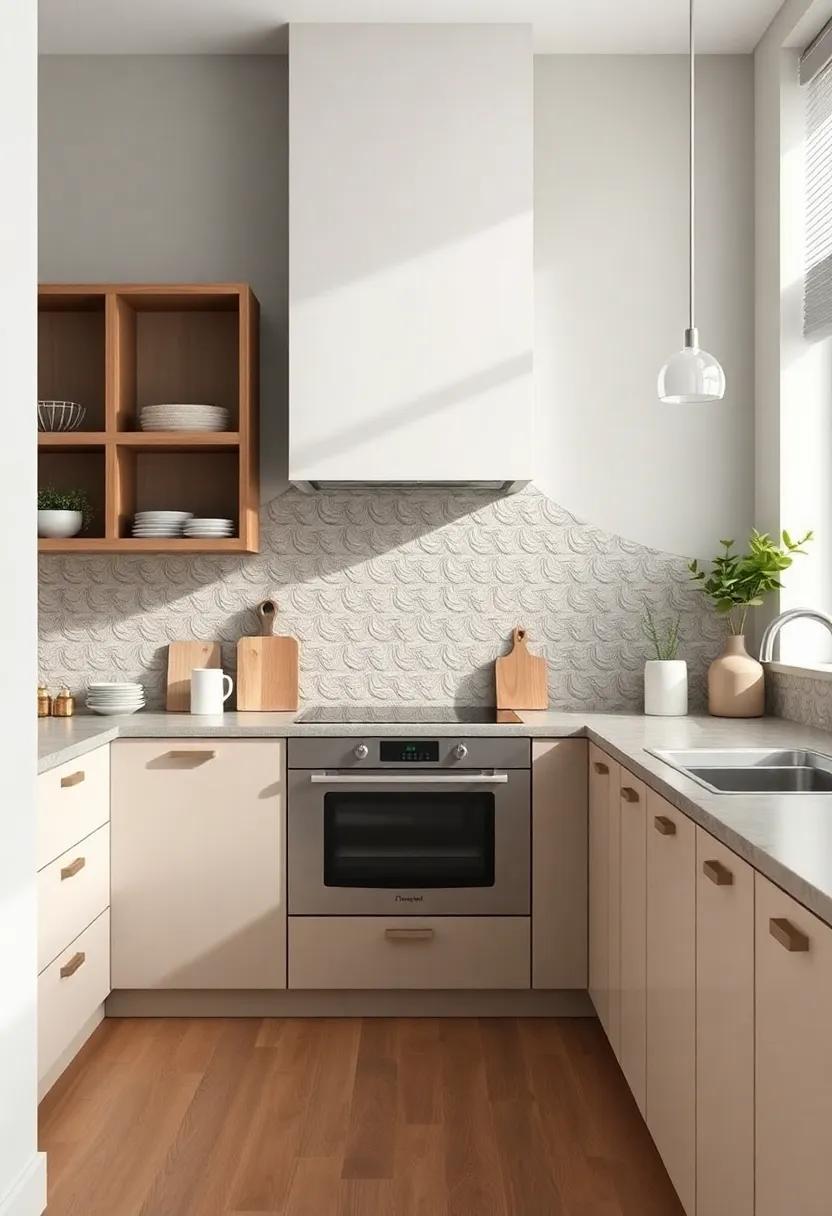
The essence of a calming kitchen environment is deeply rooted in thoughtful color palettes and sensory textures. Soft, muted hues such as pastel blues, gentle greens, and warm neutrals create an inviting atmosphere, encouraging relaxation and clarity. These colors, reminiscent of nature, can easily be integrated into cabinetry, walls, or decorative accessories. complementing these tones with natural materials like wood, stone, and linen brings an organic feel to the space, inviting both tranquility and elegance.
Textures play a pivotal role in fostering a sense of calm. Incorporating elements such as smooth ceramic, soft textiles, and grains of unfinished wood can enhance the tactile experience within the kitchen. This variety not only adds depth but also engages the senses in a non-overwhelming way. Consider arranging a focal table that pairs a rough wood surface with sleek ceramic dishware,adorned with seasonal greenery. Such contrasts boost character while maintaining the minimalist ethos of Scandinavian design, ensuring the kitchen remains a serene sanctuary for culinary creativity.
The Charm Of Vintage: Blending Old With New In Kitchen Design
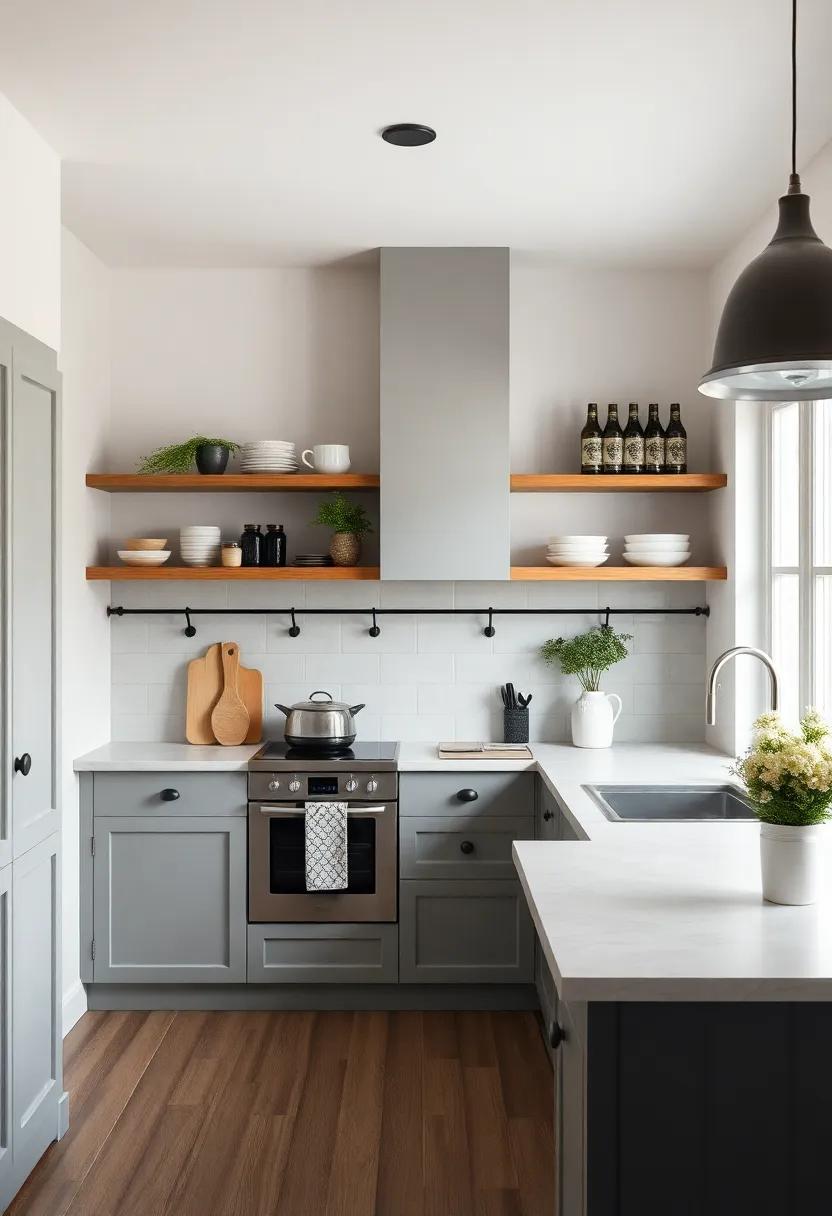
The allure of vintage design lies in its ability to weave together stories from the past with contemporary aesthetics,creating a space that feels both familiar and refreshingly new. When applied to kitchen interiors, this synthesis enables a unique juxtaposition of timeless materials and modern functionalities. Imagine sleek Scandinavian cabinetry harmoniously coexisting with reclaimed wood frames or rustic tile backsplashes that tell tales of yesteryears. This blend not only adds character but enhances the functionality of the kitchen, ensuring it meets today’s demands while retaining a sense of history.
To achieve the perfect balance between vintage and modern, consider integrating elements such as:
- Vintage Fixtures: Incorporate antique knobs or faucets that uplift modern cabinetry.
- Modern Appliances: Opt for energy-efficient models that seamlessly blend into classic design.
- artisan Textiles: Use linen or cotton fabrics in your kitchen textiles that add warmth yet feel contemporary.
By thoughtfully selecting pieces that resonate across timelines, the kitchen evolves into a narrative space—one that invites both nostalgia and innovation. With so many possibilities, creating a kitchen that embodies both the charm of vintage and the sleekness of modern design is not only achievable but distinctly rewarding.
The Heart Of The Home: Creating Community-Centric Kitchen spaces
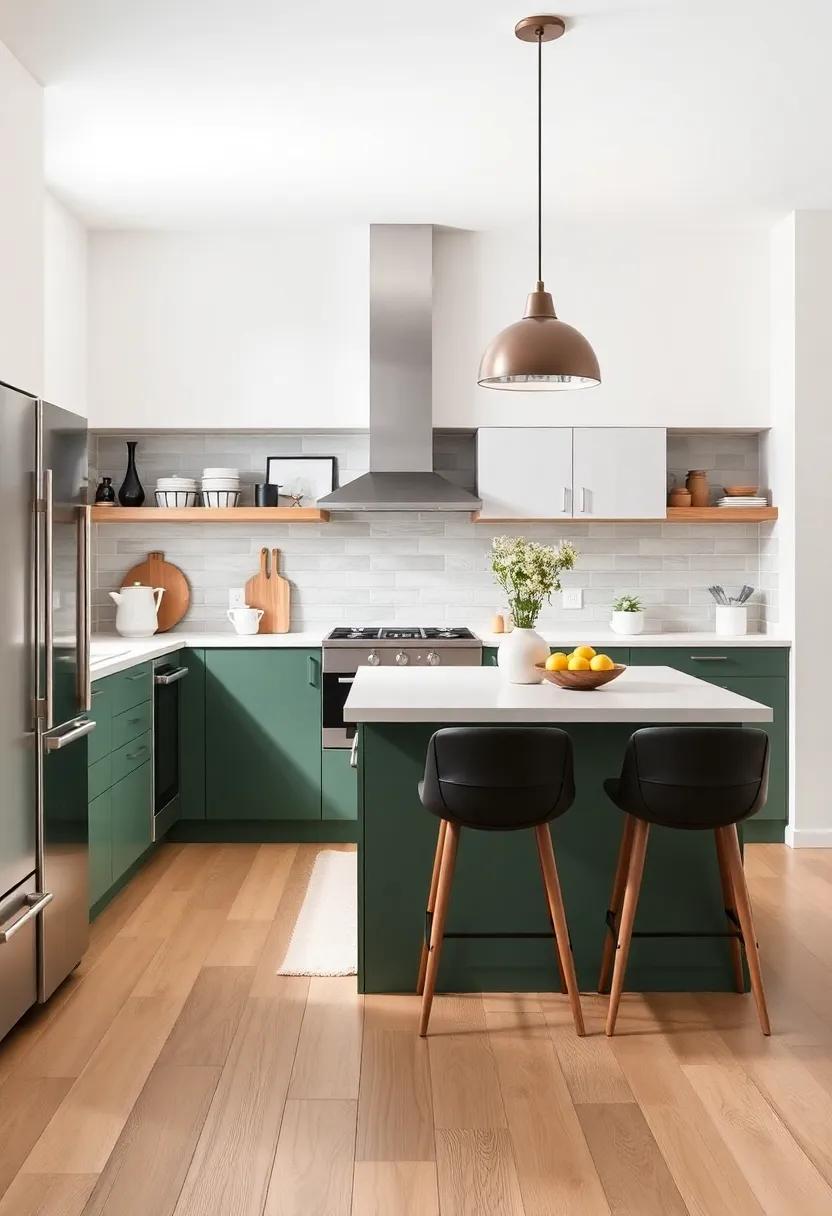
In a world where the hustle and bustle of daily life can frequently enough feel overwhelming,creating a communal kitchen space that reflects simplicity and functionality can substantially enhance the warmth of your home. Scandinavian design champions minimalism, focusing on clean lines and natural materials that beckon family and friends to gather. Picture open shelving adorned with thoughtfully selected kitchenware, a functional island that doubles as a dining area, and light-filtering windows that keep the space bright and airy. This aesthetic not only fosters an inviting atmosphere but also encourages engaging interactions, turning meal preparation into a communal activity.
To achieve this heartwarming vibe in your kitchen, consider incorporating key elements of Scandinavian design, such as:
- light Woods: Emphasize natural textures with wood finishes that add warmth.
- Neutral Color Palettes: Use whites, greys, and soft pastels to create a calming environment.
- Functional Storage Solutions: Invest in clever cabinetry that keeps surfaces clutter-free while maintaining style.
- Multi-Functional Furniture: Choose pieces that can easily serve various purposes, such as a kitchen island that provides prep space and dining options.
By integrating these elements, your kitchen will not only reflect a minimalist aesthetic but also invite loved ones to create lasting memories together.It’s about finding the balance between beauty and practicality, ensuring that every corner of your space fosters connection, conversation, and comfort.
The Way Forward
As we draw the curtain on our exploration of Scandinavian kitchen interior design, it becomes clear that minimalism is more than a mere aesthetic—it’s a philosophy that fosters clarity, functionality, and an appreciation for the simplicity in everyday life. the allure of this design approach lies not only in its clean lines and soothing palettes but also in its ability to create spaces that nurture connections and invite comfort. Embracing minimalism enables us to declutter our surroundings and our minds, promoting a serene environment where culinary creativity can flourish.
As you venture into your own kitchen project, consider how these principles can breathe new life into your home. A Scandinavian-inspired kitchen is not just a visual statement; it is a celebration of intentional living, where each element serves a purpose, and every detail contributes to a harmonious whole. So, whether you’re redesigning your kitchen or simply seeking a touch of elegance in your home, remember that the beauty of minimalism lies in its power to transform not just spaces, but our very way of life. Embrace the allure, and let simplicity guide you toward a more mindful and enriched living experience.
As an Amazon Associate I earn from qualifying purchases.
 darbylanefurniture.com Interior design ideas with the latest interior inspiration
darbylanefurniture.com Interior design ideas with the latest interior inspiration
